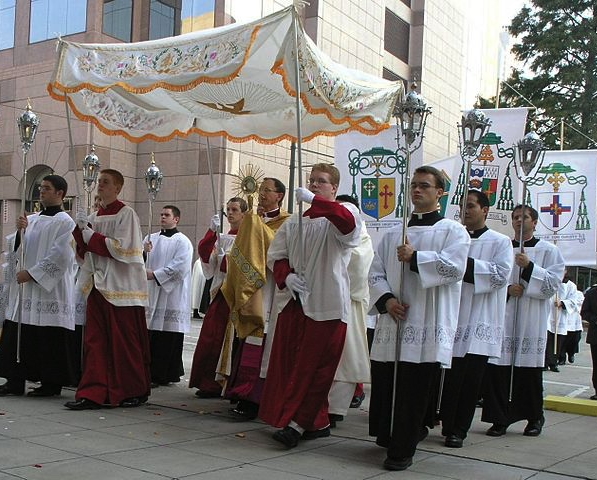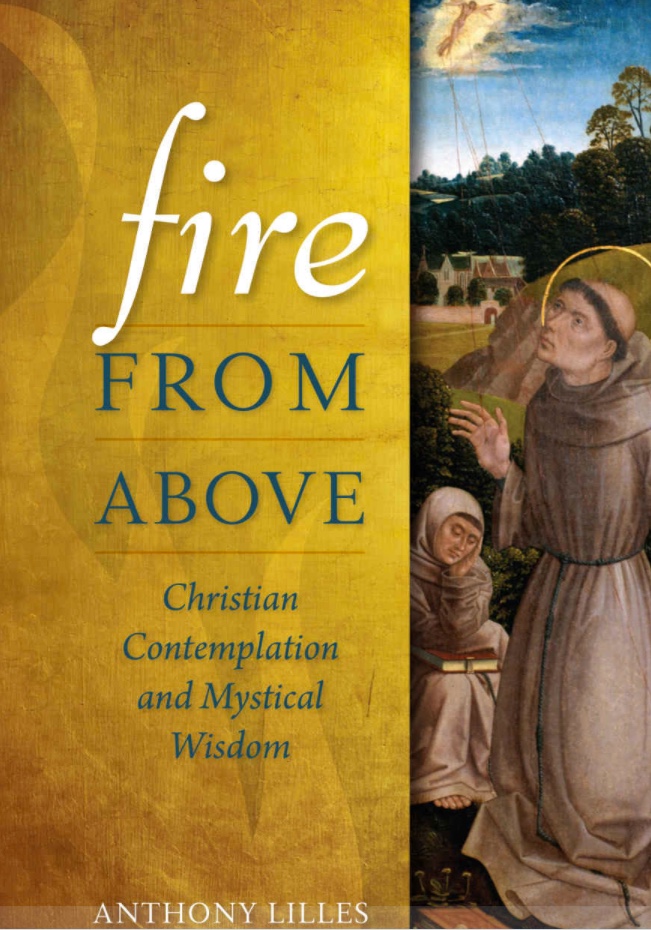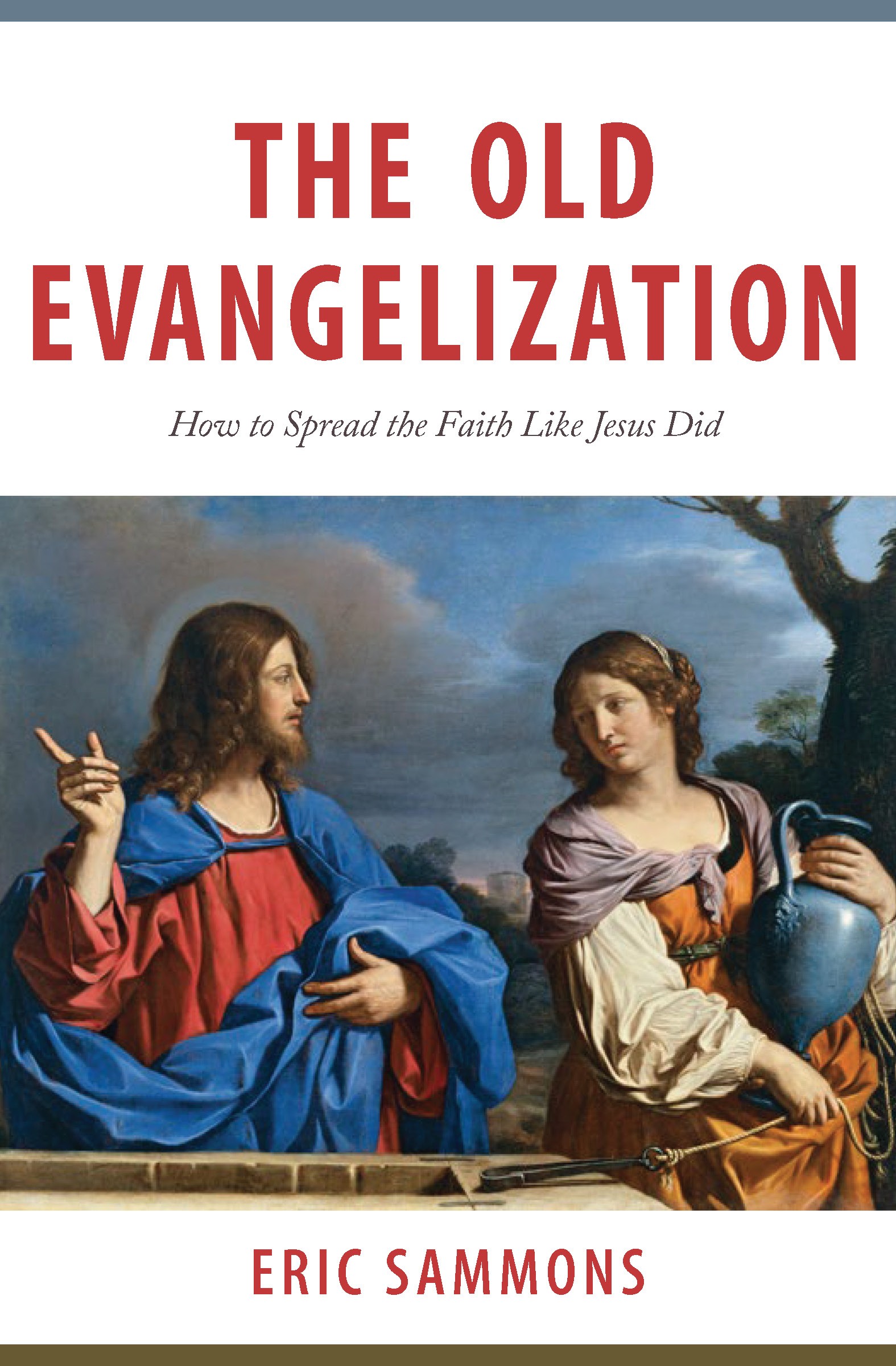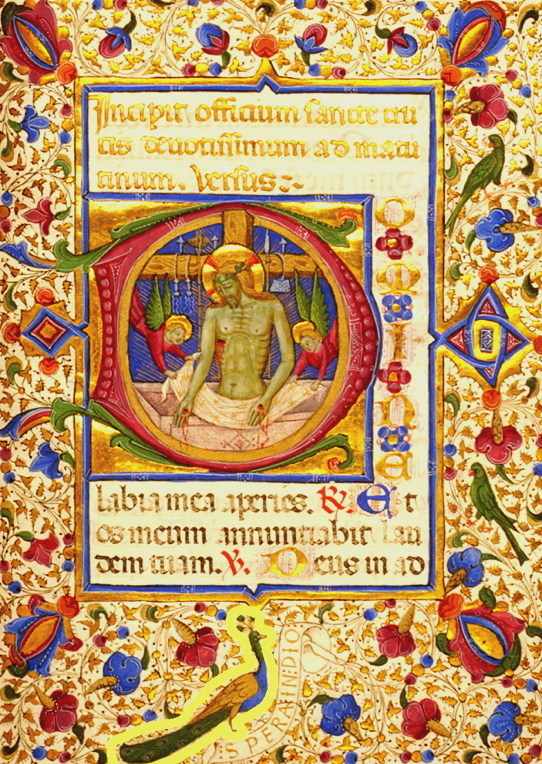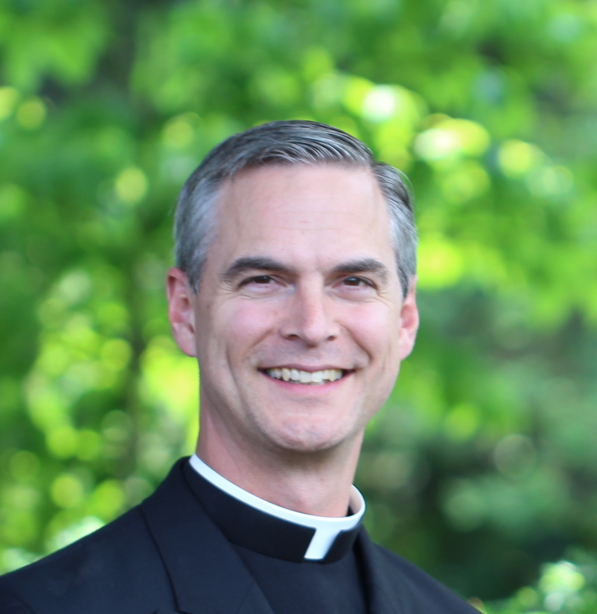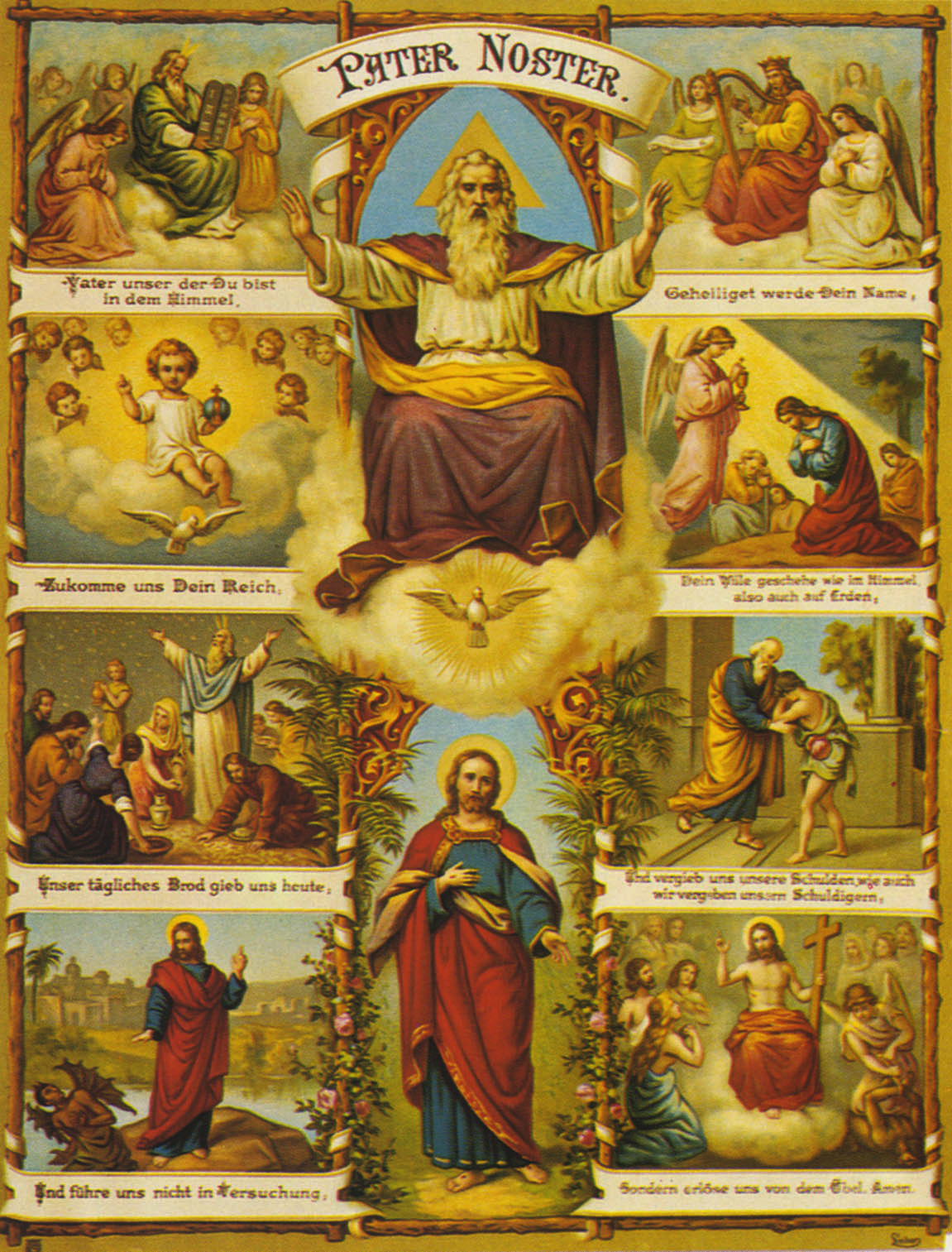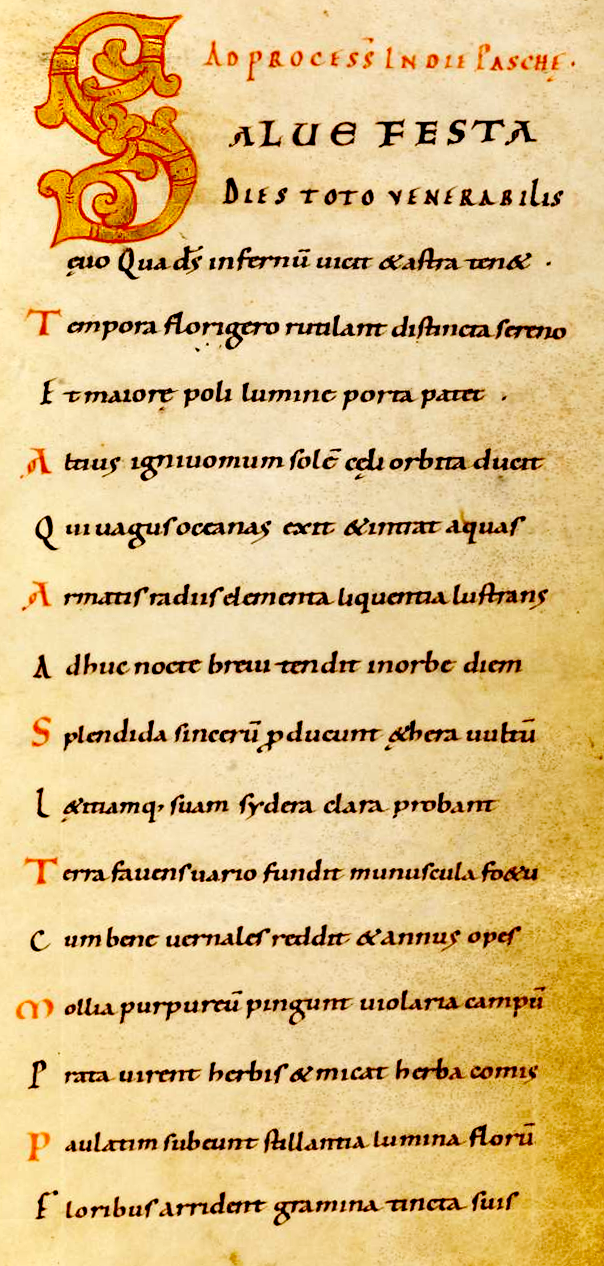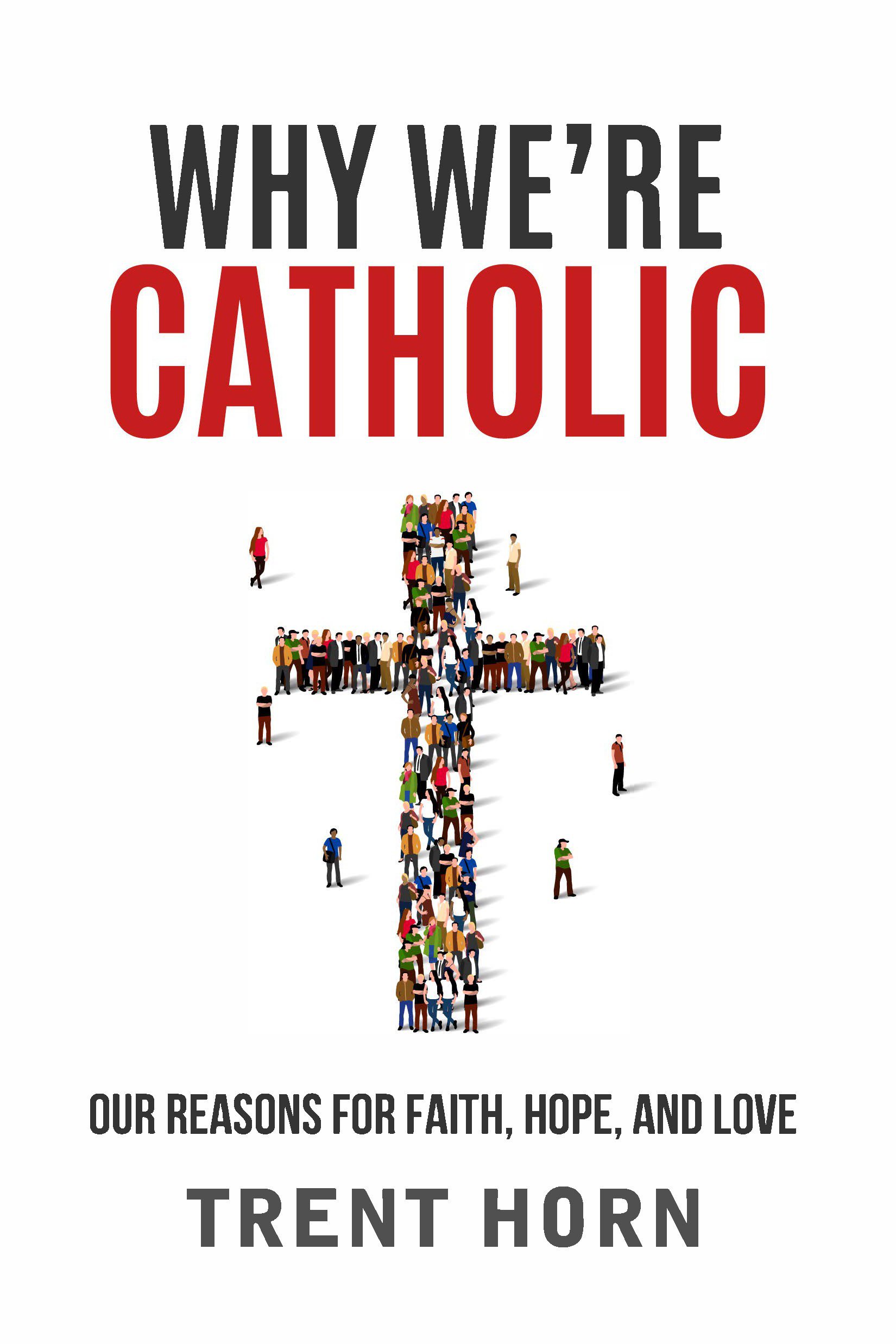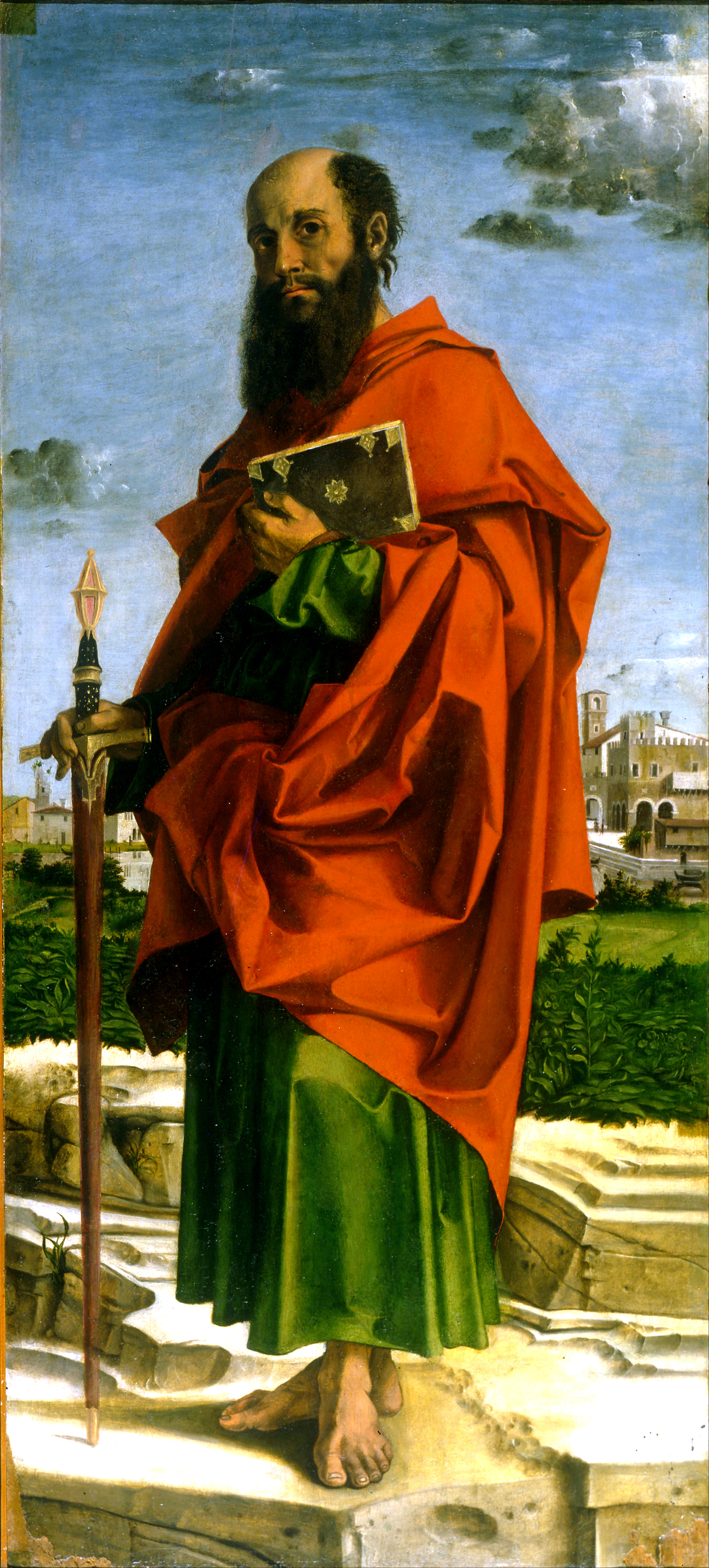
-“Saint Paul”, Bartolomeo Montagna, ~1431 AD

-by Casey Chalk
“Ecumenical Bible studies: they are often demonstrations of the best and worst of Christian dialogue. In their most beneficial form, they offer opportunities for members of various Christian traditions, be they Catholic, Orthodox, Reformed, or various strands of Evangelicalism, to share their own rich understandings and applications of Biblical literature. Alternatively, they can devolve into unprofitable contests of “name that Scripture verse” to support some particular doctrine — justification by grace through faith alone, Petrine primacy, infant baptism, you name it. A tendency among those Christians eager to “keep the peace” in a setting featuring divergent theological beliefs and practices is to try to find common ground, lowest common denominators, and “non-negotiables.” Such attempts can themselves be profitable, though at times the result is a conversation lacking any theological depth, the participants so frightened of controversy and of offending one another that folks reduce themselves to “this is how this Scripture verse speaks to me” comments. Better than nothing, I suppose, though certainly less than what we are called to do as Christians when approaching Holy Scripture. It’s hard to imagine St. Paul walking into a synagogue in Corinth and declaring in firm confidence to the Jews present: “You may have your own interpretations of the Torah, which may be equally true, but let me tell you what this Scripture means to me!” Is there any way for Christians of different theological stripes to bridge the gap? In this post I will propose an alternative way to read and discuss Scripture that I think offers opportunity for more fruitful exchanges between Christians.
Why Can’t We All Just Get Along?
One of the biggest obstacles to overcome in ecumenical Bible studies is that individuals from different traditions have certain “voices” speaking to them when they sit down to read Scripture, and it’s not that we are all schizophrenics. What I mean is that no one really sits down to read their Bible in a vacuum, as if one could really isolate their reading in such a way that it was just that person, the Holy Spirit, and the text. Rather, we read Scripture with all manner of unavoidable influences: what others have told us about the text, what we have read others say about the text, what influence the text may have had on our lives (presuming we’ve read it before), what associations we have with certain words or ideas in the text, and so on. Truly, there’s no such thing as “me and my Bible” — it’s me, my middle-school youth group leader, my first “Teen Bible,” the pastor at my church, Christian radio, that course I took in college, what my significant other believes, and on and on.
To take a more doctrinal view, some Protestants will be reading their Bibles in light of doctrines prevalent in mainstream evangelicalism (say, Rick Warren or Philip Yancey), Reformed thought (say, John Piper or R.C. Sproul), or even the “emergent church” movement (think Donald Miller’s Blue Like Jazz or William P. Young’s The Shack). Catholics, on the other hand, will read their Bibles in light of popular Catholic thinkers like Scott Hahn or Bishop Robert Barron, and probably with various Magisterial teachings from Church councils or papal doctrinal statements floating around in the background, as well. None of these influences, I would argue, can be easily put aside in an ecumenical Bible study, because their mark on our thoughts and practices runs deep. But neither can members of different traditions just accept an opposing position, as if an evangelical would say, “fine, I’ll just put my opinions on hold for the next hour-and-a-half and act as if whatever the Pope says is true.” We do indeed need some “common ground” beyond just picking up the Bible and starting to read it together, and it needs to be more than just some overly-deferential and vapid validation of everyone’s opinions. Since the New Testament, and particularly Paul’s letters, are one of the more popular texts for Bible studies, I want to focus my attention there. In this case, I propose that reading Paul in light of another New Testament text, the Book of Acts, can reap ecumenical dividends.1
Why Acts?
Using Acts as an interpretive “lodestar” can be an effective tool for ecumenical dialogue because it itself is something everyone at the table should already agree on: it’s Scripture! There shouldn’t be any Protestants, Catholics, or Orthodox asserting their defiance to the book, as if it represents some subtle means of asserting one’s particular theological tradition over the conversation. In addition to this fairly obvious point, I can identify at least three other good reasons why Acts can be an interpretive lodestar — meaning, just as certain stars in the sky, like Polaris, can serve as a guide the course of a ship, so Acts can serve as a guide or reference point for reading Paul.
The first is that Acts is history, specifically, the history of the early Church during part of the Apostolic age. Generally speaking, reading a history of a particular era shines light on the “primary texts” of that era, helping contextualize and make sense of that historical period. Consider this example: let’s say you want to learn about the American Civil War. There are many great collections of letters, diaries, and memoirs regarding this historical period: Elijah Hunt Rhodes, Sam Watkins, Mary Chestnut, etc. You could certainly pick up one of them and just start reading. But will much of the text make sense to you, especially if you have little knowledge of that period? If your goal is to answer certain broad contextual questions regarding the Civil War, like “what were its causes?,” “who were the most important people?”, “what were the most important events”?, and “how and why did it end?”, these texts will not provide a systematic or thorough answer. Indeed, they weren’t intended to, because they were occasional, meaning written in reaction to a certain occasion. Elijah Hunt Rhodes, an enlisted soldier in the Union Army, didn’t intend his journal to be a history — he was simply recording his own personal experiences. In order to have a history in the modern sense, one needs a book (or books) written by someone who has read scores of primary and secondary sources, interviewed people, and visited important sites. You need a general history.
The Book of Acts is, in a sense, exactly that kind of general history. It is an overview of the major events and themes of the early Church, beginning with Jesus’ ascension into heaven around A.D. 33, and ending when St. Paul was imprisoned in Rome (probably around A.D. 60). Of course, for us as twenty-first century readers, Acts is itself a primary source of information about the early Apostolic Church, but it would not be too much of a stretch to call it a type of “secondary source,” or maybe more accurately a “proto-secondary source.” The author, St. Luke, very explicitly says in the beginning of the Gospel of Luke that his research is a compilation of information based on eyewitness testimony. If we read Acts first, and read Paul’s letters (or any other letters in the New Testament, for that matter), in light of what we know about the Church in Acts, we are sure to reap interpretive rewards.
A second reason to understand Acts as a general history is an argument from literature. Consider this analogy: if you wanted to know about Jane Austen and her literary corpus, reading all of her literature would give you quite a few details about her: her own life, and the major themes and ideas of her writing. But it would still be incomplete, because reading Austen’s work doesn’t tell you a lot of important things about her, information that would illuminate much of her books. If you were to read other works by authors who have done research on Austen, or who have sought to compile a biography of her life, you would be able to grasp more fully what she is trying to accomplish in Pride and Prejudice or Sense and Sensibility.
St. Paul’s letters are themselves a genre of literature, what scholars often call epistles, a type of formal letter. If you want to understand St. Paul, his life, the themes and doctrines that defined his theological understanding, you could read only the thirteen letters ascribed to him. Yet this would be woefully incomplete, especially given that the Book of Acts contains so many details about his life and teachings. Indeed, in addition to his conversion story (related three separate times!) and his missionary activity, Acts features several sermons of St. Paul, giving an additional important aspect to interpreting his teaching. Moreover, St. Paul is the main character of the second half of Acts, so much so that he is mentioned 131 times in the entire book. If you know Acts, you will better know St. Paul.
Finally and somewhat obviously is the organization of the New Testament itself. One may know that the books of New Testament are not listed in chronological order. In chronological order, the first book of the New Testament would likely be the Gospels of Matthew or Mark, or possibly Paul’s Letter to the Galatians. Then would be most of Paul’s epistles, followed by the Gospel of Luke, then Acts, possibly some more epistles, and finally the Gospel of John and Revelation. Yet in our our Bibles, we have Acts coming right after the Gospels, before any of Paul’s epistles, the other epistles, or Revelation. Why?
Remember that the New Testament canon did not arrive in the early Church overnight, nor was it easily agreed upon by all Christians. The books of the New Testament were written over a period of around 50 or 60 years, and many churches didn’t have access to all of those books for centuries. The earliest lists of New Testament books we have are from the latter half of the second century A.D. — this includes the Muratorian Canon and a list provided by St. Irenaeus of Lyon. No body of Christians (at least that we know of in the historical record) weighed in on an authoritative list of the New Testament until the four century. When these councils did vote on the content of the New Testament, they placed Acts directly after the four Gospels. This seems to have been a reasonable decision, given that the Gospels tell the life of Jesus and His Apostles up through the resurrection and ascension, and Acts picks up the story from the ascension. Possibly a bit more curiously, these Church councils separated Acts from the Gospel of Luke, which most scholars recognize was written by the same author, given the similarity of language and themes. In between the two books the councils placed the last of the Gospels, John, written almost certainly last, and also almost certainly after Acts. Why do this? Possibly because the council wanted to declare to readers: “first, know the story of Jesus; then,, know the story of the early Church; and once you know those stories, know the epistles of Paul and others.” Acts appears where it does in the New Testament because the Church in the fourth century believed it important for people to read it before reading St. Paul’s own works.
A Few Questions to Explore
I’d like to briefly move from theory to application. Bible studies often feed upon group questions for discussion. I’ll propose a few here, with the overarching theme of asking what happens if one reads St. Paul’s letters (or other Apostolic letters, for that matter) in light of Acts. I’ll also offer a few of my own reflections as I’ve sought to read St. Paul using Acts as my lodestar.
Question 1: What were the most important issues facing the early Church as recorded in the Book of Acts? Once you’ve named two or three, consider how those issues are addressed in St. Paul’s letters.
I would argue that apart from the persecution of Christians by Jewish and Roman authorities, the most pressing question facing the early Church was this: who is in the Church, and what do they have to do to be part of it? More specifically, is the Church only for Jews? If Gentiles are allowed in, do they in any sense have to become Jews? Note that the first recorded conflict in the early Church is between Greek-speaking and Hebrew-speaking Jews over the distribution of food to widows from their respective communities (Acts 6:1). This cultural-linguistic division becomes more pronounced when some Church leaders start sharing the Gospel with non-Jews, including an Ethiopian (Acts 8:26-40), and a Roman centurion and his household (Acts 10: 1-48). Moreover, the centurion’s conversion is so controversial that when St. Peter returns to the Church in Jerusalem he is forced to defend himself against certain Jewish Christians (called “the circumcision party”), who question the decision to baptize a Roman pagan. This conflict becomes an overwhelming tidal wave by Acts 15, when certain Christian men assert that “unless you are circumcised according to the custom of Moses, you cannot be saved” (Acts 15:1).
The greatest controversy within the early Church seems to localize on this particular question: do Gentiles who convert to Christianity need to become Jews by being circumcised and accepting Jewish dietary laws? The Church determines in Acts 15 that no, they do not, but the question continues to dog the Church: St. Paul tells us in Galatians 2:11-21 that St. Peter, coming under the influence of the same “circumcision party,” had separated himself from Gentile believers in Antioch, for which St. Paul publicly reprimanded him. This is actually the only mention we have within the New Testament of one Apostle publicly rebuking another.
What I’ve described above suggests that this was the predominant controversy of the early Church, encompassing the entirety of the historical period during which St. Paul’s letters were written. We should thus ask ourselves how the issues cited in the Pauline epistles (including his discussion of “faith v. works”) appear when viewed as part of this particular conflict over the status of Gentile Christians.2
Question 2: How did the Apostles pursue evangelism toward Jews and Gentiles in the days of the early Church? What was necessary to become a Christian? Do we see those priorities identified in St. Paul’s letters? Is there continuity or discontinuity in St. Paul in comparison to Acts?
St. Peter gives the first sermon of the early Church, recorded in the second chapter of Acts. When his audience asks him what is necessary for them to be saved, his response is that they repent, be baptized, and “receive the gift of the Holy Spirit” (Acts 2:38). The theme of baptism is consistent throughout the conversion stories of the early Church, repeated in Acts 8:13, 38-40; 10:44-48; 16:15, 33; 18:8; and 19:5, among others. Baptism, it would appear, is an essential feature of the missionary efforts of the Church. Moreover, baptism seems to be intimately united to the gift of the Holy Spirit, as if the sacrament in some sense actually serves as the mode by which new Christians receive the third person of the Trinity. Baptism also plays a dominant role in St. Paul’s theology, and is often united to discussion of the Holy Spirit (Romans 5:5, 6:3-4; 1 Corinthians 1:17, 6:11, 10:2; Galatians 3:27; Ephesians 2:5-6, 5:26; Colossians 2:11-12; Titus 3:5-7, etc.).
Question 3: What is the Church according to Acts? How does the Church resolve crises and conflicts? How does that compare to what St. Paul says about the Church?
The Apostles, unsurprisingly, are central to the leadership of the early Church. Indeed, Acts is largely a story of just a few key leaders: St. Peter, St. John, St. James, and St. Paul. St. Peter and St. Paul loom the largest. As noted above, the debate over the place of Gentiles within the nascent Church seems to reach its apex in Acts 15, when we read that “the apostles and the elders were gathered together to consider this matter” (Acts 15:6). This is in a sense the very first council of the Church, with the most important leaders, including St. Peter and St. Paul, present. Indeed, it is St. Peter who seems to give the “keynote address,” while St. James confirms St. Peter’s judgment. The council, apparently representing “the whole Church,” then sends a letter to the church in Antioch with its determination and various commands, while apparently claiming to act with the authority of the Holy Spirit (Acts 15:28).
The role of the Church is also central to St. Paul’s letters, emphasizing the importance of its unity (1 Corinthians 1:10-13; Ephesians 4:1-6), its holiness (1 Corinthians 6:1, 16:1; Ephesians 5:25-27), its universality or catholicity (Galatians 3:28; Ephesians 3:8-10), and its apostolicity (Ephesians 2:20; 1 Timothy 3:15; 2 Thessalonians 2:15; 1 Corinthians 11:2). Indeed, St. Paul’s ecclesiology is so high, he declares the household of God, the “church of the living God,” to be the “pillar and bulwark of the truth” (1 Timothy 3:15).3
Conclusion
Disagreements between Protestants, Catholics, and other Christian communions over the interpretation of Scripture are inevitable. In settings like Bible studies, however, we too often try to gloss over the differences as if they weren’t there, or as if discussing them will weaken our fellowship. This only needs to be the case if we aren’t capable of respectfully listening to and considering an interpretation or belief different from our own, or of communicating our own position with humility and charity. Yet through prayer and the aid of the Holy Spirit, we can overcome our own weaknesses, and find far richer ecumenical dialogue in the process. Reading the letters of the New Testament through the lens of Acts presents one opportunity for such conversation. We will likely disagree over such issues as the role of faith and works in salvation, or the how and when of baptism, or the exact nature of Church authority. Yet rather than returning to our usual mode of defensive apologetics or proof-texting, we might all benefit from a careful study of Paul in the context of Acts. We might be surprised what we find.”
Love, & Christian charity,
Matthew
1. I am indebted here to Fr. Sebastian Carnazzo, a professor at the Notre Dame Graduate School of Theology at Christendom College, who provided this methodology in his New Testament course.
2. Helpful analysis of this question can be found in N.T. Wright, What Saint Paul Really Said: Was Paul of Tarsus the Real Founder of Christianity? (Grand Rapids, MI: William B. Eerdmans Publishing Company, 1997) and N.T. Wright, The New Testament and the People of God (Minneapolis: Fortress Press, 1992).
3. Taylor R. Marshall, The Catholic Perspective on Paul (Dallas, TX: Saint John Press, 2010), 35-46.

